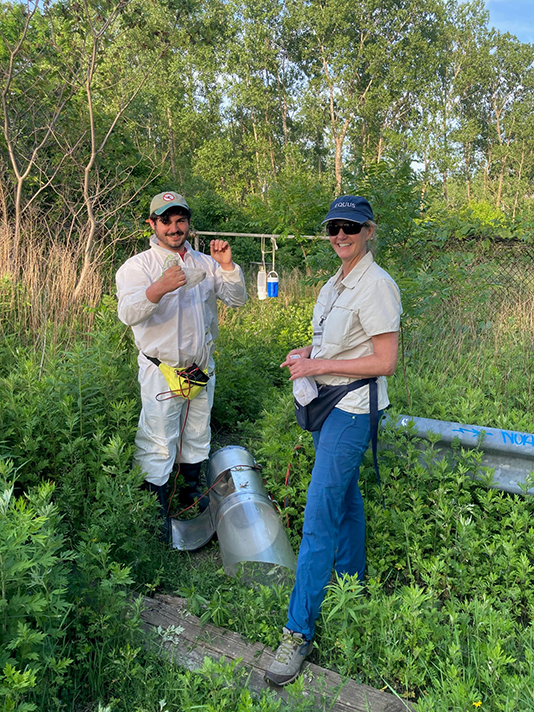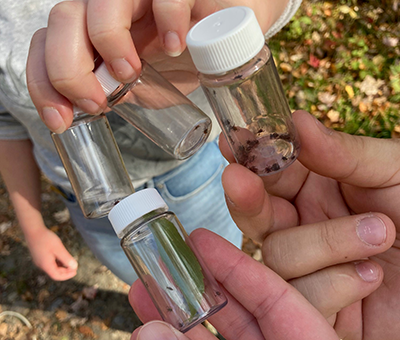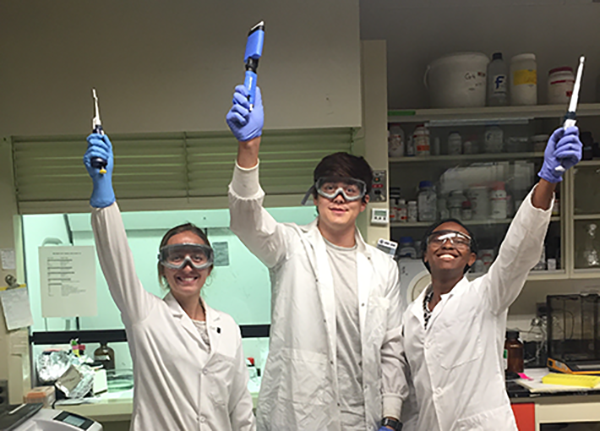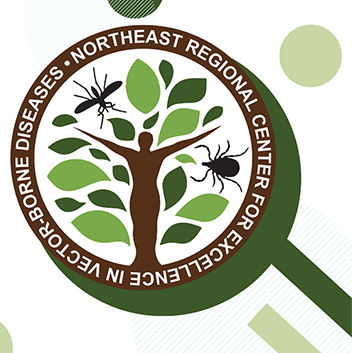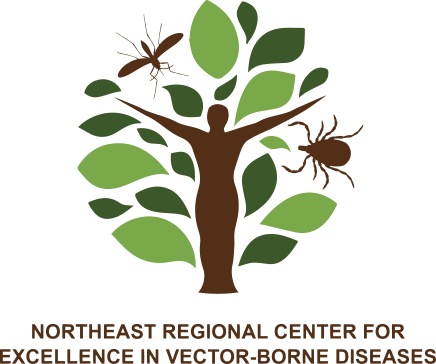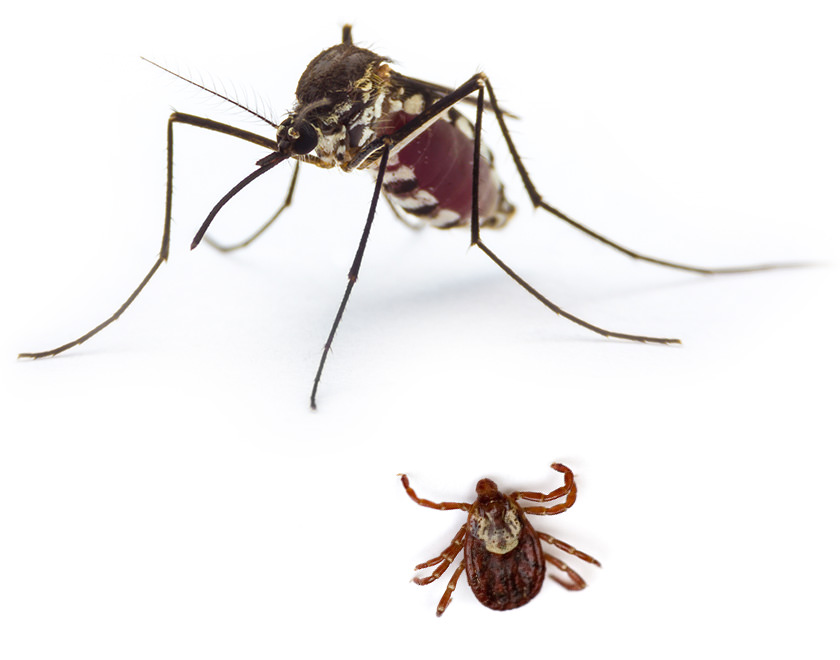
Summer Internship Program
The NEVBD Training & Evaluation Center supports a summer internship program for undergraduate students at community colleges and universities in our region. The goal of the program is to provide students with an opportunity to explore careers in the vector-borne disease field by working side-by-side with regional professionals who have expertise in vector biology, surveillance and control, and public health.
By the end of the training experience, students will gain an understanding of tick and mosquito vectors of public health significance in the northeastern region of the United States, as well as knowledge on how vector-borne disease surveillance, control, and/or monitoring is performed.
Applications for Summer 2026 are open, apply here! Applications are due February 20, 2026 at 5pm ET.
Please send questions about this internship program to our team at nevbd-internship@cornell.edu.
Program Details
Internship Duration
Summer internships occur over a 10-week period, starting in June 2026. Specific start dates may vary based on internship location and field site partner.
Work Hours
Generally, interns will be expected to work day shift hours Monday through Friday. Some variation may happen based on internship site location and project activities.
Interns are expected to contribute a minimum of 30 hours and maximum of 40 hours per week on internship activities.
Enrichment Activities
- Complete a weekly ‘blog’ providing short summaries of internship activities and what you have learned; this blog will be available to you after the internship is completed as part of your professional portfolio.
- Participate in a monthly video-linked seminar with other NEVBD interns and trainees.
- Complete evaluation surveys at the beginning and end of the internship period.
Each student who completes the internship experience will receive a certificate of completion from NEVBD.
Qualifications
Minimum Qualifications
- Age 18 or older.
- Currently enrolled in an undergraduate program at a community college or accredited university OR graduated from an undergraduate program within the past year.
- In good academic standing (GPA of 3.0+). If your GPA is not 3.0 or higher and there are extenuating circumstances, please apply and provide a brief explanation of your special circumstances that requires attention.
- Licensed to drive in your current state of residence.
- Able to meet the time commitment for the entire 10-week internship period.
- Able to meet physical requirements of internship, which may include walking in uneven terrain, lifting up to 50 lbs, and working in variable outoor conditions.
- Proximity to one of the internship site locations, or ability to relocate, during the internship period.
- Interest in biological sciences and/or public health.
Desired Qualifications
- A connection (either academic or personal) with communities in the Northeast region is strongly preferred.
- A background or prior experience in biological sciences and/or public health is desirable, but not required.
Summer 2026 Internship Locations
Click the following link to view 2026 field site locations and internship descriptions: Learn More
How To Apply
Applications for Summer 2026 are open, apply here! Applications are due February 20, 2026 at 5pm ET.
Applications include the following:
- Current resume (Microsoft Word or PDF file format)
- Most recent transcript (unofficial or screenshots acceptable)
- A personal statement explaining your interest in this internship opportunity (max 2,000 characters)
- Statement of skills and/or experiences you are hoping to gain during the internship (max 1,000 characters)
- Statement of relevant skills you currently have that can contribute to your internship experience (max 1,000 characters)
- Description of an obstacle or challenge you have faced and how you overcame it (max 1,000 characters)
- Three references who can comment on your academic or professional performance
Program Costs and Funding
Selected applicants will receive a $7,500 stipend, provided through Cornell University Department of Entomology.
Students are responsible for their own transportation and housing as well as costs associated with relocation to internship sites. Resources will be provided to help interns search for housing options in the area of their internship field site, if required.
Meet our Interns!
Our summer interns complete a weekly blog during their time with our program, sharing their experiences and what they are learning.
You can also access our intern blog archive completed by prior internship cohorts.
